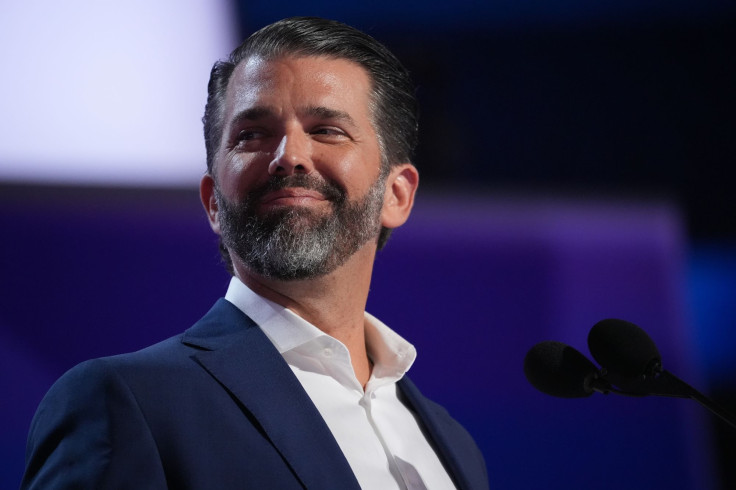
Donald Trump Jr. taunted Anthony Fauci after outgoing President Joe Biden gave him a preemptive pardon over potential investigations under the incoming Biden administration.
In a publication on X, Trump Jr. said Fauci "doesn't have to accept the pardon." "If he did nothing wrong be a man and turn it down... But you know he won't because everyone knows he's guilty of so much," added the eldest son of Donald Trump.
He doesn’t have to accept the pardon. If he did nothing wrong be a man and turn it down… But you know he won’t because everyone knows he’s guilty of so much. https://t.co/e2QKoHaUPb
— Donald Trump Jr. (@DonaldJTrumpJr) January 20, 2025
It is unclear whether a person can reject a presidential pardon. Cornell Law School's Legal Information Institute cites two cases in which judges have agreed with the premise. The first one took place in 1833, when then-Chief Justice John Marshall said in United States v. Wilson that a pardon is a private "act of grace," a ""deed, to the validity of which, delivery is essential, and delivery is not complete, without acceptance" and therefore it may be rejected, with the court not being able to "force it on him."
The document adds that even though it considered it to be highly unlikely for a person to reject a pardon sparing him or her to death, it could be rejected regardless of the gravity if it was conditional ""the condition may be more objectionable than the punishment inflicted by the judgment."
The other case took place almost 100 years later, when the Court in Burdick v. United States said a pardon may be refused where other constitutional rights are at stake. Burdick, in that case, had also not been charged with any crime. The document recalls that the apparent motivation was that Burdick had refused to testify before a grand jury investigating the involvement of Treasury Department officials in leaks about the matter by invoking his Fifth Amendment rights.
President Woodrow Wilson issued the pardon but Burdick refused to accept it, also rejecting answering certain questions from the grand jury. The Supreme Court then concluded it was "Burdick's right to refuse it" and maintain his plea of the Fifth Amendment.
Fauci said on Monday that he appreciated the decision by Biden but emphasized that he has not committed any crimes.
"I really truly appreciate the action President Biden has taken today on my behalf. Let me be perfectly clear, Jon, I have committed no crime, you know that, and there are no possible grounds for any allegation or threat of criminal investigation or prosecution of me," Fauci told ABC News journalist Jonathan Karl.
He went on to say that he is grateful because the chance that he would indeed be investigated under the Trump administration would have created "immeasurable and intolerable distress on me and my family."
Fauci has been heavily criticized by Trump and many of his allies over his handling of the Covid-19 pandemic, especially measures limiting movement and contact, such as quarantines and the use of facemask, aimed at preventing the spreading of the virus.
© 2025 Latin Times. All rights reserved. Do not reproduce without permission.





